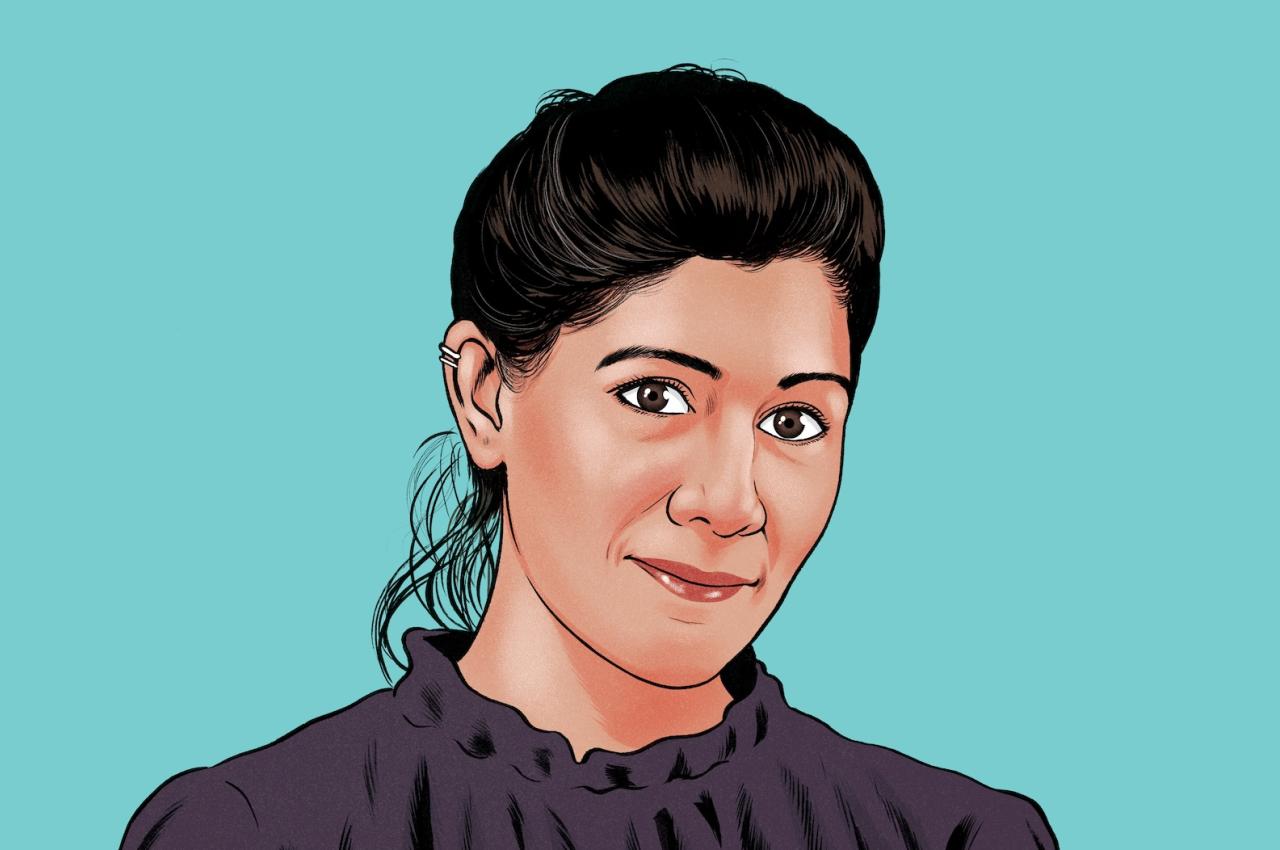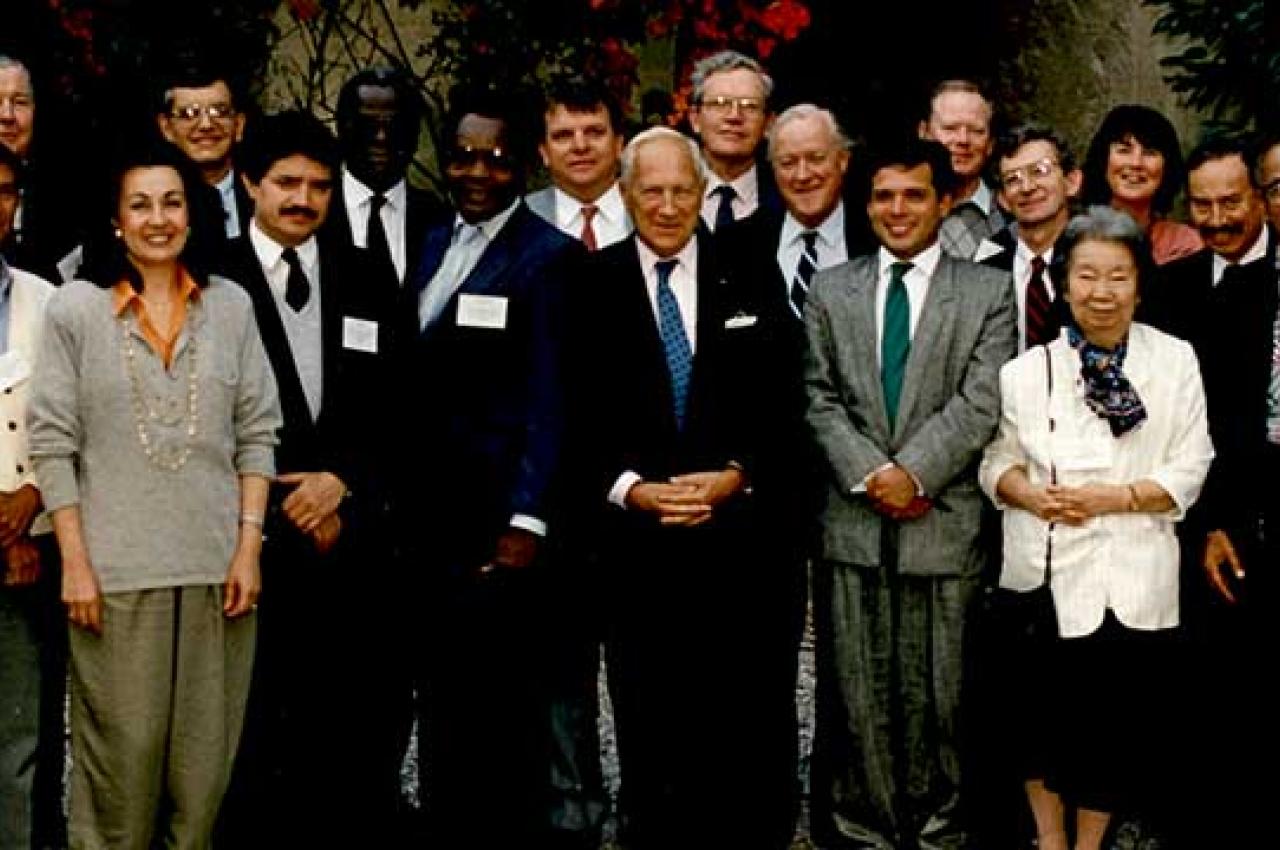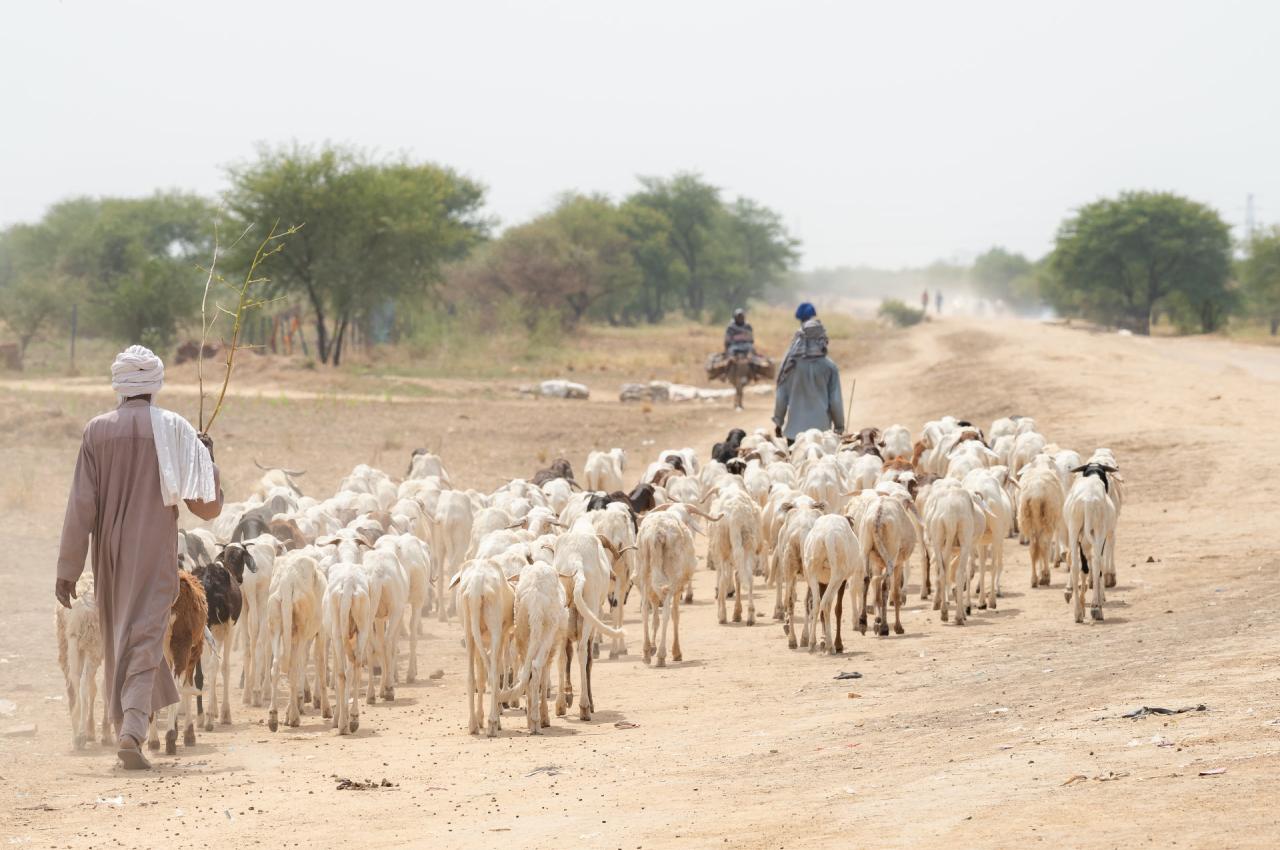How Rural Women Advance India’s Sustainable Future
When Ajaita Shah, A06, paused plans for law school, it was with a clear sense of purpose. She saw an internship in India in microfinance as an opportunity to live the values she had cultivated at Tisch College of Civic Life.
“I told my parents, I’m going to do something powerful,” she recalls, “something that will help me understand my responsibility to the world.”
That 10-month internship, it turns out, did not end with her return home to New York. Instead, Shah stayed. In 2012, inspired by her deepened understanding of how rural markets could prosper, she launched her own business.
Today Shah is founder and CEO of Frontier Markets and founder of the Frontier Innovations Foundation, both dedicated to empowering rural women as leaders of India’s inclusive climate and digital transition.
With more than two decades of experience across social enterprise, microfinance, and impact investing, Shah has pioneered a “tech + trust” model that leverages women entrepreneurs to deliver clean energy, climate-smart products, and digital services to millions of last-mile households. The powerful network is unlocking India’s $200 billion rural economy as it reaches across India, where 800 million people live in hard-to-reach villages lacking access to essential services.
“We have demonstrated that growth led by women is achievable and sustainable. We’ve shown women are assets vital to an equitable, prosperous rural India.”
Hundreds of thousands of women entrepreneurs are delivering clean energy, digital services, and climate solutions to millions of households.
“With technology enabling scale and women’s trust enabling adoption, we have the vision to reach 10 million women and 1 billion rural consumers—proving that investing in women is not charity, it is the smartest capital for inclusive and resilient growth,” she says.
Shah’s unique distribution model, the first women-led enterprise of its kind in India, has drawn accolades that include Women Transforms India Award, CNBC’s Women Entrepreneur of the Year, and L’Oreal Women of Worth. She has been among the young movers-and-shakers on Forbes 30 Under 30 and Fortune’s 40 Under 40. At Tufts, she was honored with Tisch College’s Boyana Damyanova Award for Corporate Responsibility.
For Shah, the positive response to Frontier Markets reflects its inherently inspiring mission: to accelerate gender parity by giving women their rightful respect. “Women are being seen as influencers and decision-makers, and, as their income increases, they have the financial freedom to invest in their children’s education,” Shah says. “That independence is, in turn, shifting social norms that have constricted, abused and demeaned girls and women for generations.”
Holistic Approach
Frontier Markets’ comprehensive approach focuses on the interrelationship of climate mitigation, adaption, resilience and gender equity. That holistic approach gets at the root cause of an issue, says Shah, and gives rise the most effective and long-lasting solutions.
One priority, for example, is supporting sustainable practices and resilience in the face of climate change and India’s vulnerability to extreme weather events. As Shah explains, that crucial transition requires more than improving supply chain logistics to succeed. It also depends on giving women “the dignity of being seen for who they are.”
India’s rural communities have long depended on kerosene, firewood, and diesel for basic energy needs, including household cooking. Those energy sources, though, come with hazardous consequences, including indoor air pollution, fire risk, and black carbon emissions.
Frontier Markets has made the transition to renewable and low-carbon energy a priority from the beginning. By 2019, more than 650,000 clean energy solutions, including solar-powered lamps and appliances, had been sold by the Frontier Markets network. Over just the past year, the She Leads Bharat network delivered more than 40,000 clean energy solutions to rural homes—solar lanterns, solar flashlights, home lighting systems, clean cookstoves, and climate-friendly products such as solar agricultural equipment.
“Women are being seen as influencers and decision-makers, and, as their income increases, they have the financial freedom to invest in their children’s education. That independence is, in turn, shifting social norms that have constricted, abused and demeaned girls and women for generations.”
That growth trajectory highlights rural women as enthusiastic allies in climate resilience, says Shah. “Rural women are the most resilient, powerful women I’ve ever met,” she says, as well as “natural connectors and enablers,” highly motivated to make their communities “healthy and sustainable for their families and for future generations.”
Climate Adaptation
Women account for up to 80% of the workers cultivating land and managing farms, says Shah. Recognizing that, Frontier Markets last year launched India’s first climate crop insurance product for women farmers.
An initial 5,000 farmers were protected against climate-related crop losses, and that number has grown since then: it now safeguards 15,000 smallholder women farmers in Uttar Pradesh and Rajasthan and digitally trained 35,000 women on climate-smart agriculture.
The future, however, holds even more promise, says Shah, who announced the She Leads Bharat Gender-Climate Initiative at Climate Week NYC last year. It aims to expand the insurance program to 1 million women small-holder farmers by 2030.
That aspiration, says Shah, is firmly grounded in recognizing women as “climate champions. It’s mind-boggling to me that agri-business didn’t see women as actual farmers who understand and depend on farming as a livelihood,” she says. “Climate insurance is another way to give women the dignity of being seen for who they are.”
Future Frontiers
Frontier Markets has been widely recognized for its groundbreaking work elevating rural India in the areas of microfinance, supply chains, marketing, fundraising, and customer insights. Awards include the Fintech Innovation Challenge, SDG Finance Summit’s Highest Impact Award, and a Schwab Foundation Social Innovation Award at the World Economic Forum.
Still, Shah has no plans to rest on her laurels. Building on the strength of partnerships and coalitions aligned with Frontier Markets’ economic model, she plans to ramp up the number of participating women entrepreneurs from 35,000 to 100,000 by 2027 and reach 1 million by 2030. She also aims to establish She Leads Bharat as a blueprint that can be adopted in other countries or contexts in the Global South.
“We have demonstrated that growth led by women is achievable and sustainable,” says Shah. “We’ve shown women are assets vital to an equitable, prosperous rural India. I’m proud of what we’ve achieved so far, and I am confident that the next five years we will fundamentally change the socio-economic landscape of India’s villages, one woman at a time.”
Latest Tufts Now
- A Tufts-Led, Historic Commitment to SustainabilityThirty-five years ago, Tufts guided other universities to the creation of the Talloires Declaration. Its legacy endures today
- New Thriller Blurs Lines Between Good Guys and VillainsAction comedy by Elliot Ackerman blends humor with serious themes, and is headed for Apple TV
- Recognizing Job Burnout and What to Do About ItThe most effective solution to burnout at work is employee-focused organizational change, says Tufts expert
- Wildfire Smoke Is Obvious. Its Long-Term Health Impacts Are NotA School of Medicine expert and an alum share what’s needed to better understand how wildfire smoke, both wildland and urban, impacts our health
- Working Toward Reducing Chemical Industry Dependence on PetroleumTufts researchers receive up to $4.5 million from DARPA to create robust, flexible biosynthetic manufacturing
- Does Climate Change Lead to Conflict?Tufts researcher shows connection between low rainfall and the outbreak of civil wars between African pastoralists and farmers













